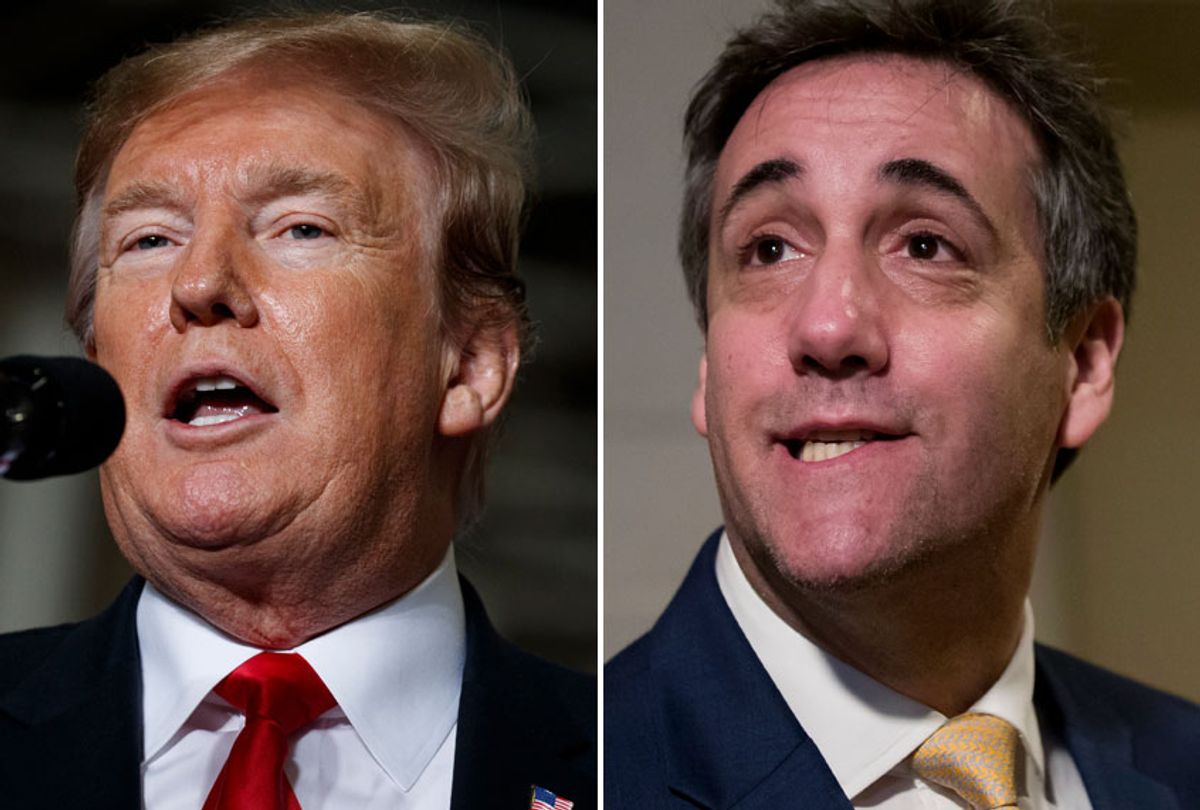Update: Rep. Elijah Cummings, D-Md., released a statement Monday disputing several statements by House Oversight Committee Ranking Member Jim Jordan, R-Ohio. He criticized Jordan for having allegedly "inaccurately claimed in his memorandum that the committee’s investigation is based 'solely' on Michael Cohen," thereby ignoring "the corroborating documents the Committee has obtained that raise grave questions about whether the President has been accurate in his financial reporting."
President Donald Trump's attorneys have reportedly warned an accounting firm not to consent to a subpoena directing it to turn over the president's financial information to the House Oversight Committee.
"It is no secret that the Democrat Party has decided to use its new House majority to launch a flood of investigations into the president’s personal affairs in hopes of using anything they can find to damage him politically," William S. Consovoy and Stefan Passantino wrote in a letter to the accounting firm Mazars USA, according to Politico.
"The Democrats’ fervor has only intensified after the special counsel squelched their ‘Russia collusion’ narrative," the pair added.
The lawyers also challenged the legality of the request by the Oversight panel's chairman, Rep. Elijah Cummings, D-Md., to obtain the requested documents.
"[T]he House Oversight Committee is not a miniature Department of Justice, charged with investigating and prosecuting potential federal crimes. It is a legislative body, not ‘a law enforcement or trial agency,’ and the chairman’s attempt to assume for Congress the role of police, prosecutor, and judge is unconstitutional," the lawyers wrote in their letter, which put Mazars USA "on notice."
Meanwhile, Rep. Jim Jordan, R-Ohio, used his position as the ranking member of the Oversight Committee to echo the lawyers' letter attacking the legality of Cummings' request.
"I strongly object to Chairman Cummings’ unprecedented subpoena to Mazars and his irresponsible and gravely dangerous course of conduct in a singular obsession of attacking President Trump and his family for political gain," Jordan wrote in his statement.
After the committee sent a request to Mazars last month for a decade's worth of the president's financial records — specifically those pertaining to the Trump Organization, the president's revocable trust and various subsidiaries — Mazars responded by asking for a subpoena. The new move by Trump's lawyers intimates that if Mazars accedes to Cummings' request for that information, it could face legal action.
Cummings' request is linked to the recent testimony by Michael Cohen, in which the president's former lawyer and "fixer" raised allegations of possible financial crimes committed by Trump. Experts have placed particular focus on Cohen's statements about how the president allegedly exaggerates the extent of his wealth.
"It appears that Donald Trump made a practice of wildly exaggerating his wealth and the supposed business acumen that enabled him to amass it," Laurence H. Tribe, the Carl M. Loeb University Professor and Professor of Constitutional Law at Harvard, told Salon last month.
He added, "Although there are no legal and especially criminal consequences to that kind of exaggeration on reality television or in talking to journalists at places like Forbes in order to cheat one’s way onto various lists of the wealthiest people around, there are very serious criminal consequences indeed when such lies, in the form of fraudulent financial statements, are used either to extract loans from banks or to obtain insurance on favorable terms from various insurance companies."
"It certainly looks like Michael Cohen’s sworn testimony to that effect – which he had no apparent motive to falsify and which, if false, would expose him to added federal imprisonment – points to criminal liability on the president’s part. I assume that both the federal prosecutors of the Southern District of New York and the prosecutors of the New York State Attorney General’s Office will pursue the truth to see whether Cohen’s testimony pans out and, if it does, to see whether the relevant statutes of limitations have run."



Shares